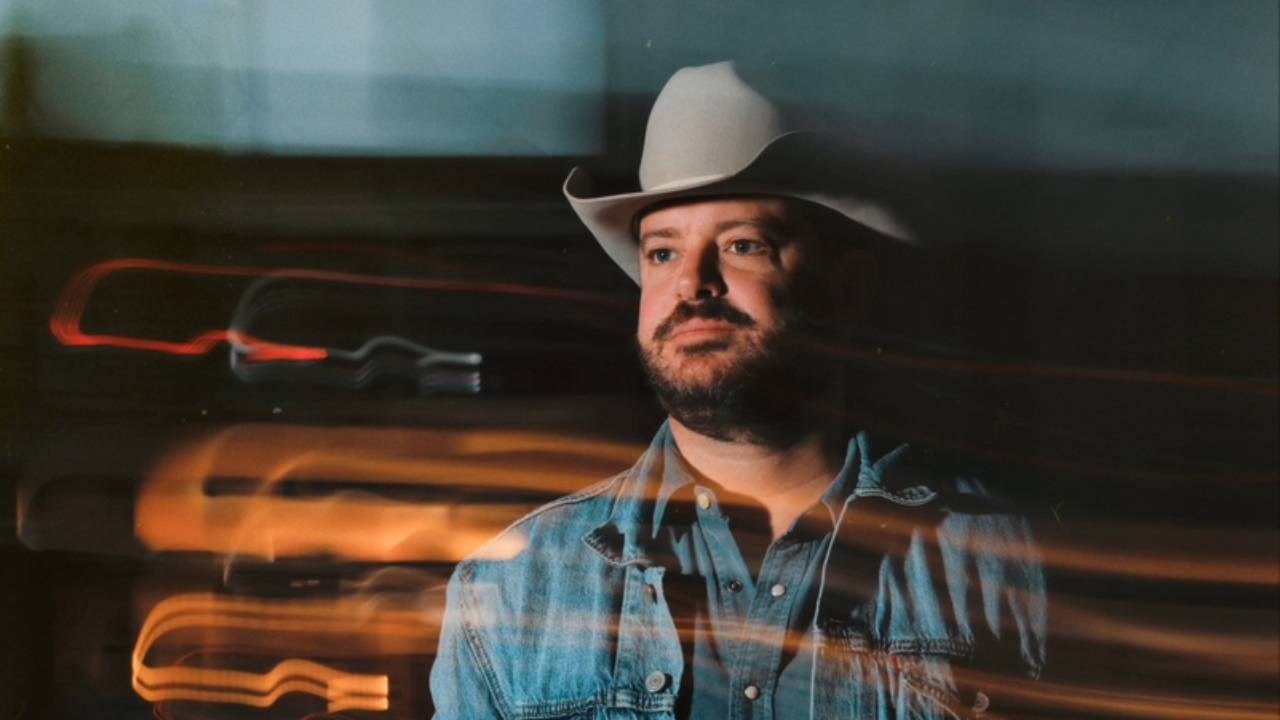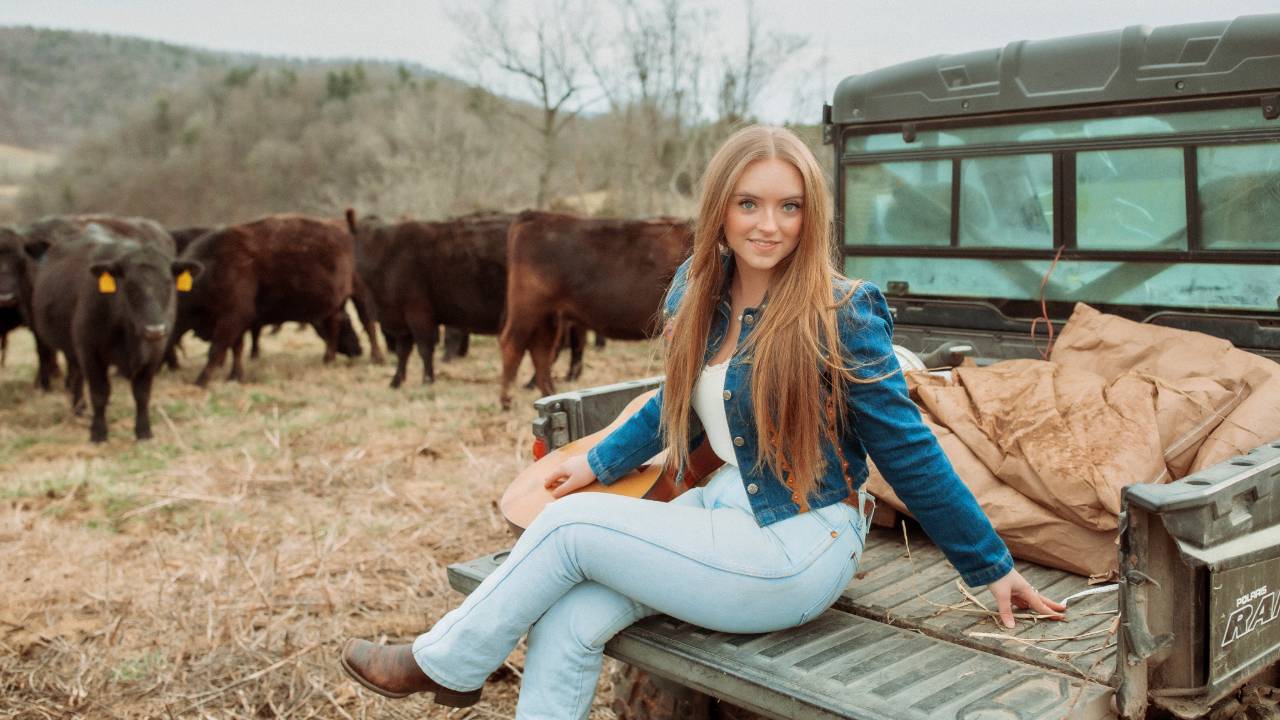100 Years After His Birth, Roy Acuff Still King of Country Music
Bill Monroe created a more intoxicating and durable sound. Eddy Arnold reached a wider audience, stayed popular longer and sold far more records. And Hank Williams wrote better songs. But Roy Acuff will forever be the King of Country Music. With his tear-clogged vocal delivery, buoyant personality and movie-star good looks, he gave country music an identity and a dignity it never had before
Monday (Sept. 15) is the 100th anniversary of Acuff’s birth. On Saturday (Sept. 13), the United States Postal Service issued a stamp in his honor, and the Grand Ole Opry -- his musical home for more than half a century -- celebrated his musical legacy. Acuff died Nov. 23, 1992.
“If I had to choose the bridge between old-fashion folk music and modern country music,” says Dr. Charles K. Wolfe, “it would be Roy Acuff. He was the linchpin, the keystone of the arch.” A world-renowned country music scholar and professor of English at Middle Tennessee State University, Wolfe is the author of A Good-Natured Riot: The Birth of the Grand Ole Opry.
Roy Claxton Acuff was born Sept. 15, 1903, in the small rural community of Maynardsville, Tenn., which lies a few miles northeast of Knoxville, Tenn., in the shadow of the Great Smoky Mountains. His father and uncle taught him how to play the fiddle, and he sang regularly at church. But his abiding passion, even into his late 20s, was baseball. When a severe sunstroke put an end to his athletic aspirations, he turned to music for his livelihood. In 1932, he toured with a medicine show -- literally a show to sell patent medicines -- where he fiddled, acted in skits and learned to project his singing voice to attract and hold crowds. At this point, Acuff decided he had what it took to become a professional entertainer.
The following year, he began working in a band, the Tennessee Crackerjacks. Their popularity soared after they began playing on Knoxville radio stations WROL and WNOX. In 1935, the band changed its name to the Crazy Tennesseans. Around the same time, he heard a group from Bob Jones University, the Black Shirts, sing a hymn called “The Great Speckled Bird.” He paid one of the members 50 cents to write down the lyrics for him, after which he began singing it in his own shows. The song soon caught the attention of a talent scout from the American Record Corp., the predecessor to Columbia Records. In 1936, ARC signed Acuff to a recording contract. He and his band recorded “The Great Speckled Bird” later that year.
Established in 1925, the Grand Ole Opry was already an institution by the time Acuff became serious about music. From 1934 onward, Acuff had tried to join the Opry -- but with no success. Finally, in February 1938, he wheedled a guest appearance for himself and the band. He was supposed to feature his fiddling, but after two such selections fell flat, he decided to sing “The Great Speckled Bird.” By the next week, sacks of fan mail had poured in. Suddenly, the Opry had a new star. “There’s no doubt,” Wolfe says, “that ‘The Great Speckled Bird’ got him his Opry job.” Until Acuff came along, the Opry cast had been made up primarily of vocal and instrumental groups, with the notable exception of the raucous old-timer, Uncle Dave Macon. Acuff was perceived as a solo act with a backup band. (Not long after Acuff joined the show, Opry brass persuaded him to change the band’s name from the Crazy Tennesseans to the somewhat more dignified Smoky Mountain Boys.)
“Roy came to the Opry at an important time in its development,” Wolfe continues. “It was set to make the big jump [to network radio].” Starting in 1939, NBC began carrying a half-hour segment of the Opry each week with Acuff as the star. By 1940, faithful fans were pressing their ears to the family radio to hear him wail such colorful and sentimental tunes as “Wabash Cannonball,” “Beneath That Lonely Mound of Clay” and “The Precious Jewel.” Later favorites of this early period included “Wreck on the Highway,” “Fireball Mail,” “Wait for the Light to Shine” and “Two Different Worlds.”
Acuff also filmed his first movie in 1940, a decidedly low-budget effort titled Grand Ole Opry. “He was a devilishly handsome young man [then],” Wolfe observes. Unlike other country stars, though, Acuff refused to dress like a cowboy for these cinematic dabblings, insisting instead on being as true as possible to the culture he came from. He did several more short films over the next nine years, including Hi, Neighbor (1942), O, My Darling Clementine (1943), Sing, Neighbor, Sing and Cowboy Canteen (1944), Night Train to Memphis (1946) and Smoky Mountain Melody (1949).
During World War II, Acuff performed frequently for American troops, who carried his music -- via records, songbooks or memory -- around the world. Bluegrass patriarch Ralph Stanley was an 18-year-old private when he arrived in Germany with the U. S. occupying forces in December 1945. He recalls the first sound he heard as he landed in the port of Bremerhaven was Acuff’s mournful “Not a Word From Home” moaning from the loudspeakers.
By 1942, Acuff was reportedly making $200,000 a year from personal appearances, movies and record and songbook sales. So he decided to start a music publishing company, the first one based in Nashville devoted to country music. “There were people coming in here from New York, California, Chicago, all different places that had publishing companies, trying to buy my songs,” Acuff told me in a 1982 interview. “[They] would come in here and offer me $1,000, $1,250, $1,500 for a song, and me a little old boy here almost broke -- me and my wife. … They kept on doing that, and I kept refusing because I could see if a song was that valuable to them, it was worth something to me.”
Far from being broke now but still without a publisher, Acuff set aside $25,000 for startup costs. He then persuaded Fred Rose, an accomplished songwriter and pianist working at the Opry’s home station, WSM, to organize and run the company. Thus was born Acuff-Rose. In the years ahead, it would make its owners millions by publishing and promoting Acuff’s and Rose’s own songs, as well as those of Hank Williams, Don Gibson, the Louvin Brothers, Roy Orbison, Mickey Newbury, Dallas Frazier, Eddy Raven and dozens of other first-rate composers.
At an Acuff show in Dallas during World War II, former baseball great Dizzy Dean admiringly dubbed the rising superstar “the King of the Hillbillies.” This rather inelegant approbation was quickly changed to “the King of Country Music” and has remained so.
It is important to remember that Acuff became famous -- and rich -- before radio stations began using records for their programming. He built his audiences primarily through live broadcasts and personal appearances. He also benefited from that relatively new form of popular entertainment, the jukebox. By the time Billboard began publishing country music charts in 1944, Acuff’s biggest hit records were behind him. Between 1944 and 1989, his last appearance on the charts (in a duet with Charlie Louvin), Acuff had only six Top 10 singles.
Acuff left the Grand Ole Opry in 1946, supposedly over a salary dispute but possibly to explore a career in the movies. But he returned the next year to resume his place as the show’s most celebrated performer. With considerable reluctance, he ran for the governorship of Tennessee on the Republican ticket and was beaten badly. “I got to meet a lot of different people, people in different walks of life from what I was in,” he recalled in the 1982 interview. “But I didn’t expect to win. I didn’t want to win. I couldn’t afford to win. The greatest thing the Democrats have ever done for me was to defeat me for the governor of Tennessee.”
Throughout the ‘50s, Acuff continued to make records, but relatively few of them charted. He had only one chart record during the ‘60s and only three during the ‘70s. In 1962, he became the first living person elected to the Country Music Hall of Fame. His music got a boost in 1971 when a group of “West Coast longhairs,” the Nitty Gritty Dirt Band, convinced him to participate in their “back-to-basics” album, Will the Circle Be Unbroken. His single with the Dirt Band from the album, “I Saw the Light,” enjoyed a brief stay on the charts. When the Dirt Band did its second Circle album in 1988, Acuff sang on it, too. A year earlier, the Recording Academy had been presented him a Grammy award for lifetime achievement.
Although Acuff was a staunch traditionalist who had been with the Opry -- save for one year -- throughout its long tenure at the Ryman Auditorium, he championed the show’s move in 1974 to new quarters at the Opryland USA amusement park. Here, in recognition of his importance, he was given a permanent dressing room, the one nearest the stage. For the next 18 years, he held court in this room on Opry nights, accepting the homage of fans and newer performers and chatting and jamming with old friends. When President Richard Nixon visited the new Opry House for its opening ceremonies, Acuff entertained him on stage with yo-yo tricks and by balancing his fiddle on his nose. These diversions had been a popular part of the singer’s performances since he came to the Opry.
Apart from his Opry appearances, Acuff also performed regularly on the long-running TV series, Hee Haw. He also made at least three music videos: “One Big Family,” a multi-artist effort in 1985 to promote hunger relief and, in 1990, “The Precious Jewel” (with Louvin) and “I Wonder If God Likes Country Music” (with Bill Anderson).
Even in old age, Acuff had a real flair for mischief. In 1990, The Nashville Network assembled all the living members of the Country Music Hall of Fame on the Grand Ole Opry stage to tape an in-the-round special of singing and storytelling. Participating that night were Acuff, Minnie Pearl, Bill Monroe, Little Jimmy Dickens, Chet Atkins, Loretta Lynn, Earl Scruggs, Grandpa Jones, Pee Wee King and Kitty Wells. Among the by-invitation-only crowd seated in a circle around the performers were Garth Brooks, Ricky Skaggs and Carl Perkins. Someone had given Acuff a small hand-held mechanical device that amused him greatly. When the cameras weren’t rolling, he would sidle up to one of his distinguished peers and squeeze the device, whereupon it would utter a familiar two-word epithet, the last word of which was “you.” Some looked shocked, but they all indulged the king in his whimsy.
During his final years, after the death of his wife Mildred in 1981, Acuff lived on the Opryland grounds in a house built especially for him. It was one of his delights to amble around the park, greeting tourists and posing for pictures, regal to the end.





